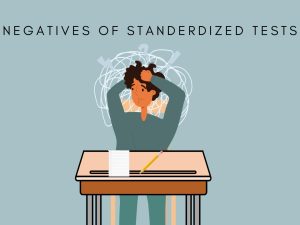A Testimony
Why participating in this Friday’s Day of Silence can create change

Abigail Lee, Guest Writer
April 24, 2018
Believe it or not, there’s a secret side to being gay or trans. Beneath the rainbow flags and glitter and keyrings, there lies a great and terrible truth that is beginning to divulge itself. Despite its prevalence, it seems to be barely discussed in tones resonating louder than a whisper. It is rooted in prejudice and violence. It is something many within the community have become desensitized to due to its frequency.
In a study conducted by Galop UK, it was revealed that four out of five LGBT people report being the victim of a hate crime. Those who belong to the LGBTQ community are still subject to becoming the victims of senseless hate crimes. This devastating, unavoidable truth is a negative yet recurring part of what is commonly known as the “queer experience” by members who choose to identify it as such.
Hate crime. Defined by Merriam-Webster as crimes that are “…motivated by hostility to the victim as a member of a group (such as one based on color, creed, gender, or sexual orientation).”
Also, they serve to reflect a society that is not as accepting and welcoming as recent progress may lead one to believe. Living where we do, in a fairly open and accepting community, it’s easy to forget that there are places outside of our own that are not as forgiving. According to the Human Rights Campaign, only three months into 2018, six transgender people have been murdered. But for what? For the way they dressed, acted, or presented themselves to the world that vehemently denied them acceptance? Society reflects the people it is composed of. The actions of citizens define culture.
In 2014, it was considered a joke for a seventeen-year-old boy to light agender teen Sasha Fleischman’s skirt on fire. A result of peer pressure. A gag between friends. Surely, for Sasha, the second to third-degree burns, multiple surgeries, skin grafts, and long nights altered by the haze of pain-reducing drugs were not a joke. However, to our society, people like Sasha and people like me are viewed as such ― a punchline.
That being said, there has been progress made in the name of LGBT folks around the world. In the past decade alone, the United States legalized gay marriage, allowed gay men and women to serve in the military, and placed protections on LGBT people in the workplace. Things were going well. In fact, things were going great. It seemed that society was beginning to catch up to the idea of same-sex couples.
However, trans and genderqueer people specifically are struggling to catch up with the rest of the community in terms of being accepted. A study conducted by Vox concluded that American voters hold more unfavorable views of trans people than of any other group. The current President attempted to outlaw transgender citizens from serving in the military. As we are all too aware, North Carolina legislature passed an act called House Bill 2, which required people to use the restrooms that correspond with the sex on their birth certificate. This law essentially attempted to force trans women to use the men’s restroom, and trans men to use the women’s room.
The defense for these beliefs and legislation comes under many guises, including the idea that trans people are different from their cisgender (being comfortable and identifying with the gender assigned to one at birth) counterparts, and therefore should be kept separate. Upon closer inspection, this argument crumbles to pieces. According to a study conducted at UCLA, around seven percent of teens identify as transgender ― around 150,000 kids that are uncomfortable in the bodies they were born in.
If you’ll take a step away from the statistics of gender and focus your attention on the people underneath, you’ll see that the idea of someone not being able to conform with the body and pronouns they are assigned at birth is not so outlandish as it seems. If only there was a chance that those against the thought of a human seeking to be more comfortable in their own skin, perhaps they could get used to it as well. Perhaps less LGBTQ people, specifically transgender and non-conforming people, would suffer from hate crimes.
There is a time when we must draw the line and acknowledge this secret, silent threat that haunts queer people in our nation and countless others. It feels daunting. It feels impossible. It feels permanent. So, the question stands: What do we do?
On Friday, April 27, GLSEN (Gay, Lesbian, and Straight Education Network) will conduct its annual Day of Silence, which Wakefield and its Gay-Straight Alliance are proud to participate in. If you are interested in supporting the victims of bullying and harassment due to their gender or sexual orientation, there are ways to support Day of Silence and the GSA.
To participate in Day of Silence, you will need to donate a minimum of $1 to a foundation to assist those suffering from AIDS to be registered as completely silent for the day (tables for registration will be stationed beginning during Smart Lunch on Wednesday, April 25th) or you may register as a supporter for free at the table or by seeing Ms. Oshinsky in room 3322. Registration this year will be strict, with a list of silent participants sent to all staff, and any silent participants or allies must be registered. We’d love to see you at GSA as well! Meetings are held weekly during Smart Lunch B, unless otherwise stated through the Remind (text @wakegsa to 81010) in room 3322.
There is is a time when we must stand, united, straight, gay, cis, trans, and look out for one another to defend against the stigmas, the prejudice, and the hate crimes. That time is now, and we are the only ones that can prove it.









Erin sheridan • Apr 26, 2018 at 5:01 pm
Love it! LGBT history, or even modern LGBT events are erased in our schools and, I for one, would love to see more articles like this, to spread awareness and educate people. It’s high time we teach each other and let ourselves be taught.
Paul Richard • Apr 25, 2018 at 10:09 pm
I know that the LGBTQ society believes there is long way to go but an article like this would not be well received when I was growing up 50 60 years ago. Society has swung quite a bit in the way of acceptance
since the 1950’s and 60’s.
This well written and insightful article can only help further the cause.